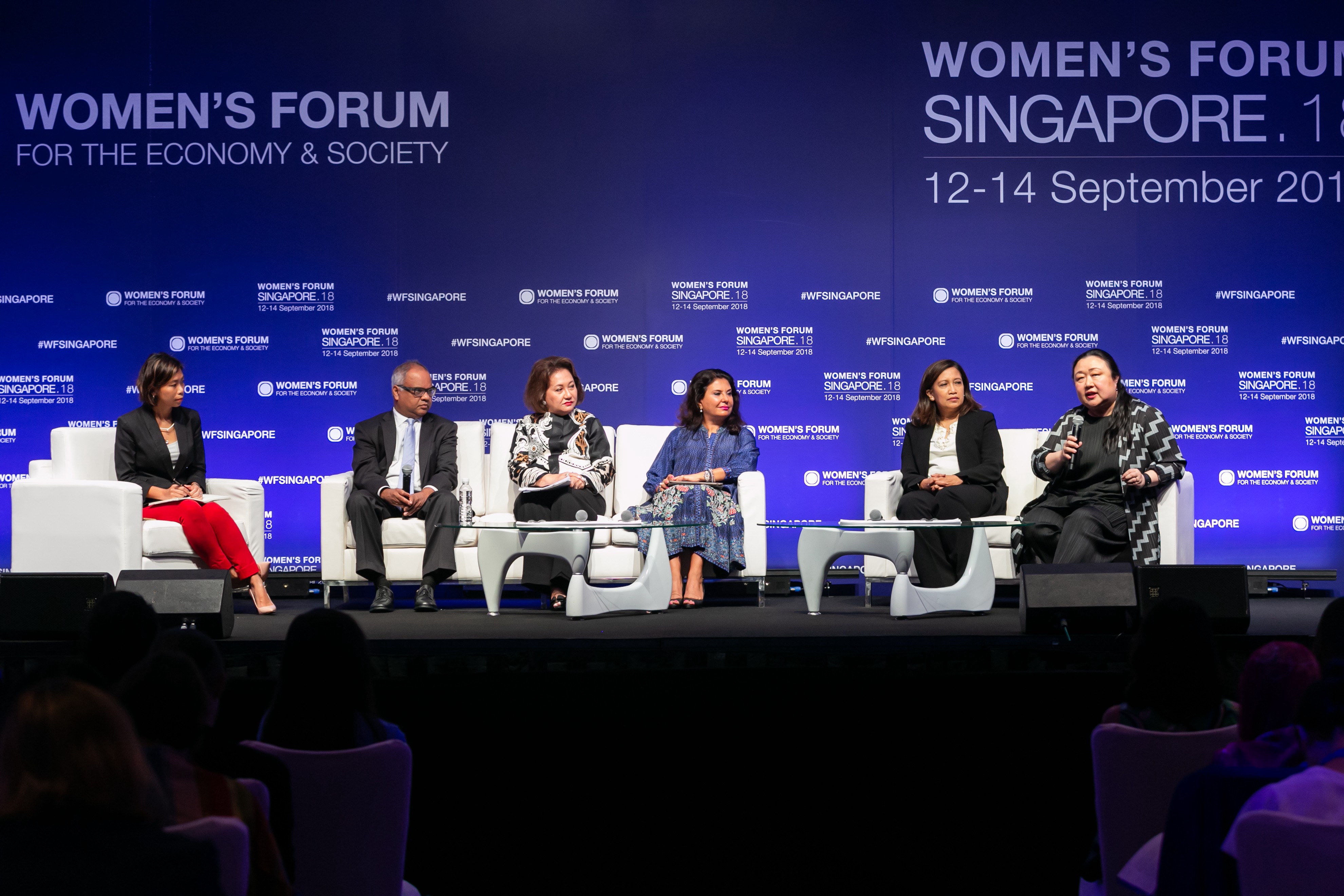As part of our efforts to engage young and emerging leaders, students and alumni from INSEAD, HEC, Sciences Po attended and reflected on sessions over the course of the two-day Women’s Forum Singapore. Opinions expressed are solely writers’ own and do not express the views or opinions of the Women’s Forum.
Moderated by Julia Leong, APAC Director of Business Operations at LinkedIn, this session explored the educative solutions to help dismantle bias towards women and expand their landscape of opportunities with the expertise of Kamal Ahmad, Founder, Asian University for Women, Hana’a AlSyead, Founder, Wujud, Liz Kamaruddin, Managing Director in the Strategic Communications practice, FTI Consulting Malaysia, Georgette Tan, President, Singapore Committee for UN Women and Senior Vice President, Communications, Mastercard and Linabelle Ruth R. Villarica, Deputy Speaker, House of Representatives of Philippines
The five panellists started the discussion with the challenges and opportunities in Asia Pacific and agreed that different approaches were needed to cater for South Asian and South East Asian challenges.
Kamal Ahmad explained in more details the difficulties that women encounter to access education in South Asia. He emphasised the obstacles that were put in their way, especially women from rural areas or from refugees’ camps. Kamal Ahmad mentioned that one of these obstacles is the mindset of prejudices that inhibits us. The university he created, the Asian University for Women, aims at “addressing prejudices that disable and disallow women that are in the margins of society to access education”. In South Asia, education is a way to give a voice to marginalized people. Kamal Ahmad took the example of the Rana Plaza collapse in 2013: the survivors did not have a voice to tell their story after the dramatic accident. If they had been able to write, the aftermath of this event would not have been the same.
In South East Asia, panellists agreed that the context is quite different. Linabelle Ruth R. Villarica took the example of her country to illustrate this point. She mentioned that “Philippines was recently ranked by the World Economic Forum in the top 10 of countries in their Global Gender Gap Report”. In Malaysia, as well, the situation has dramatically improved, with a Female Deputy Prime Minister and a special funds dedicated to women entrepreneurs. Liz Kamaruddin shared that “2018 is the year of women’s empowerment in Malaysia”.
The panellists proposed several educative solutions to improve women’s situation. Hana’a AlSyead, Founder, Wujud, noted that “not enough men are engaged on that topics”, while Liz Kamaruddin stressed the importance of fairness. According to her, “fairness is different from equality; fairness means adapted solutions for both genders”. Georgette Tan, President of the Singapore Committee for UN Women, advocated for a stronger role of the government in giving young women more support to ensure that their university degree is translated into labour force participation. She concluded the session by stating that support should be considered “not as a hand out, but as a hand up”.
By Mathilde Poiraudeau

